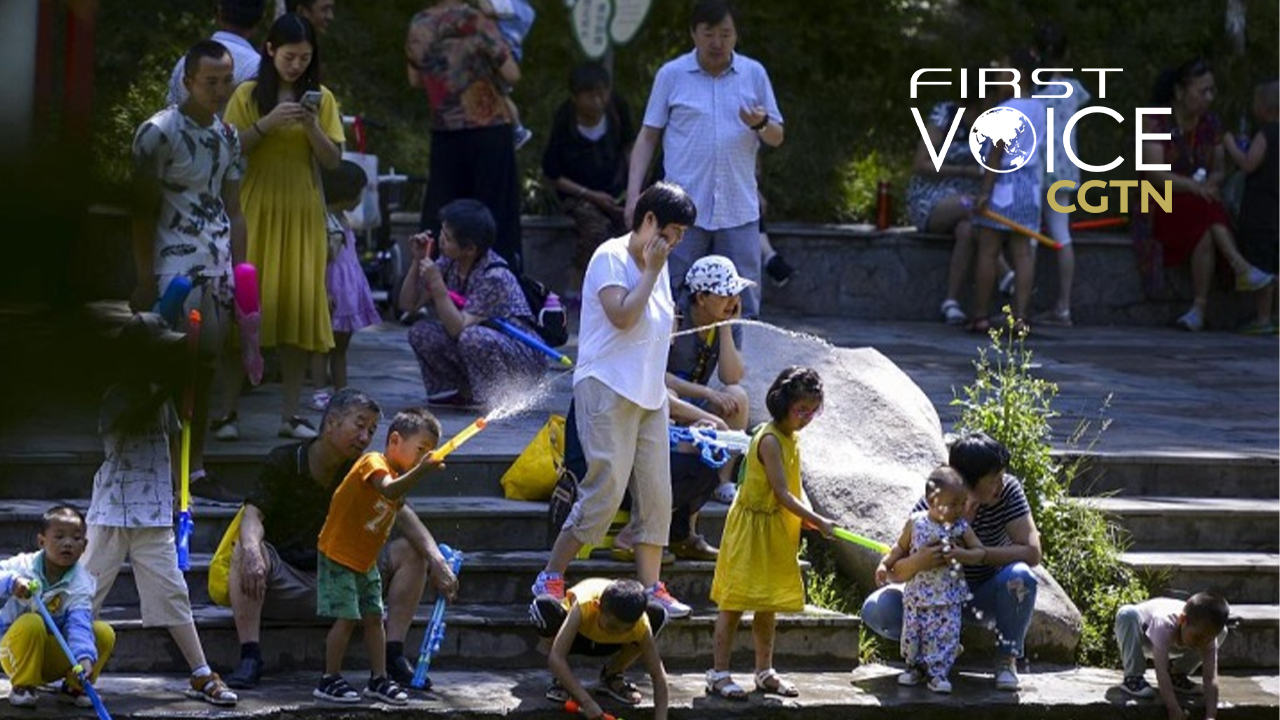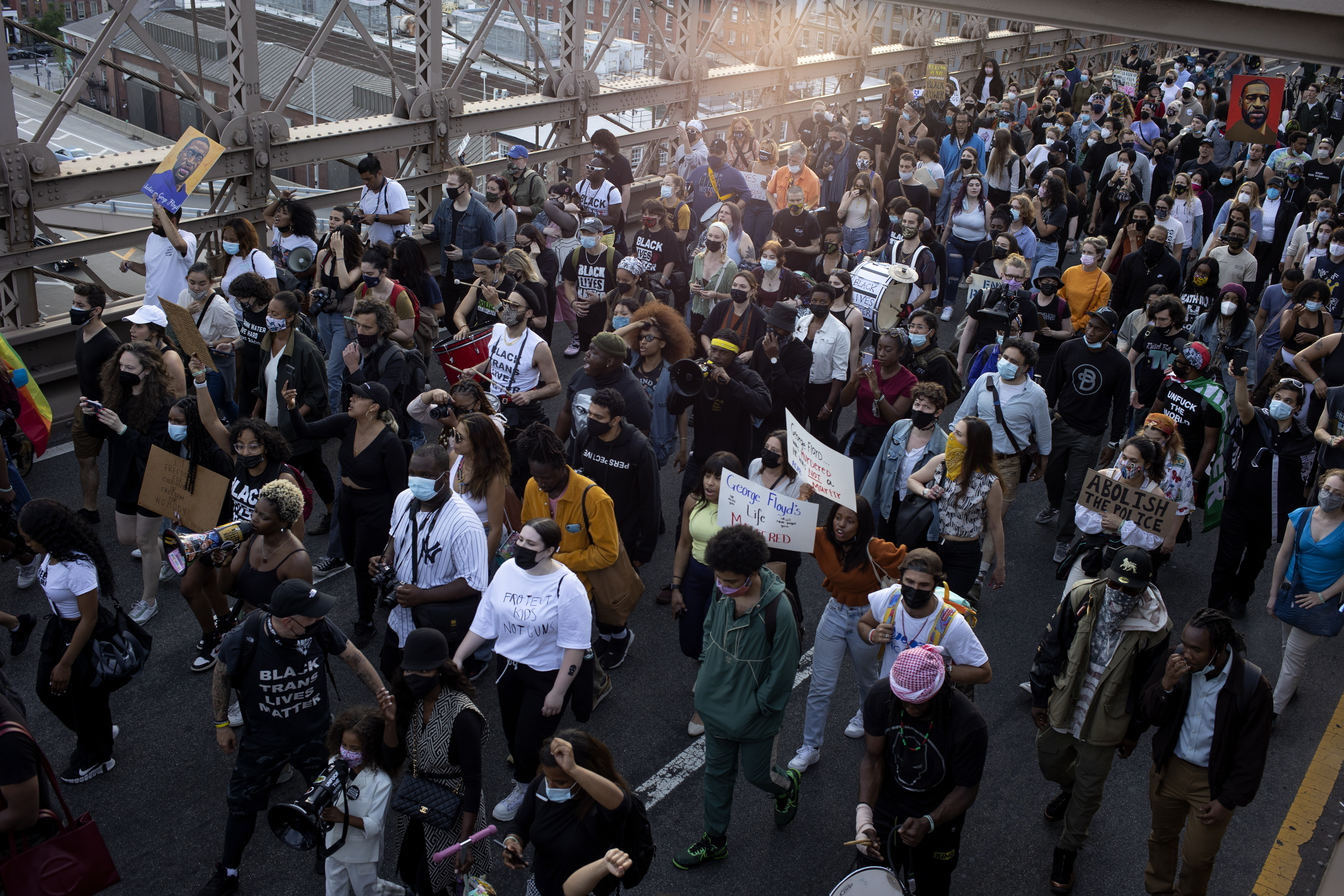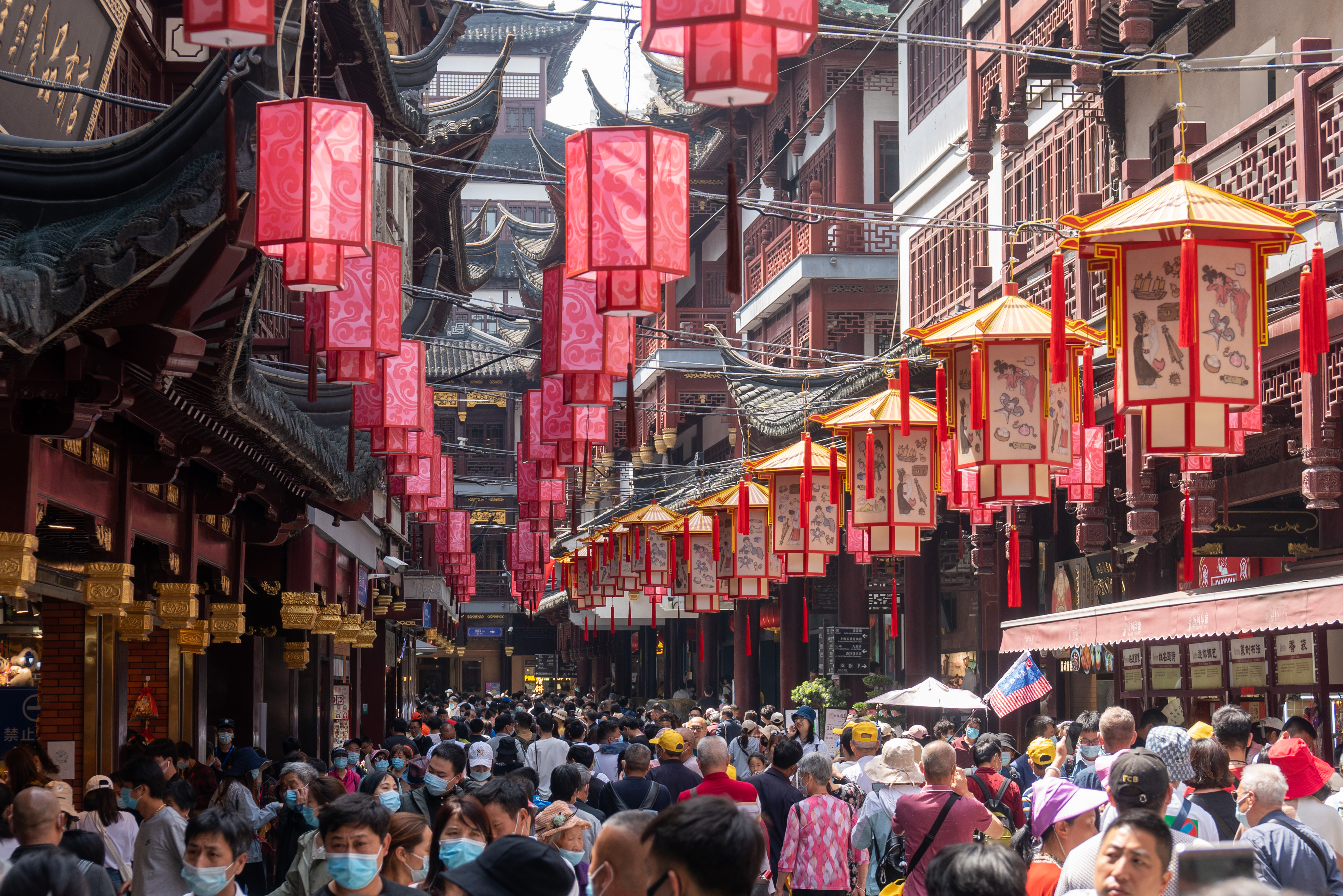
Editor's note: CGTN's First Voice provides instant commentary on breaking stories. The daily column clarifies emerging issues and better defines the news agenda, offering a Chinese perspective on the latest global events.
Over the past 100 years since its founding, the Communist Party of China has been at the forefront of protecting human rights – both at home and around the world.
This might come as a surprise to some, because Western media and political leaders often accuse China of ignoring human rights. As pointed out in the white paper of the CPC's practice in human rights protection published on June 24, when the CPC was founded a century ago, China was fragmented by endless conflicts between warlords and factions, with common people ensnared in poverty and struggling to get by. Over the course of the past century, the Party has driven out foreign invaders, and united the country in peace. Since the late 70s, it has lifted an unprecedented 700 million people out of poverty.
The CPC's historic victory against insecurity and poverty has resulted in the well-rounded development of the individual, and is a unique and readily apparent success in pioneering human rights in a socialist country. This victory has given every Chinese person a stronger sense of gain, happiness and security. Compared with 100 years ago, the Chinese now live in a safe environment and have universal access to education, health care and social security, the bedrock of human rights.
In places like the U.S., having a roof over your head, food on the table, and access to schools, health care and a job or social security are not generally considered by politicians to be human rights. The U.S. loves to boast about its "free" elections and unconstrained media that treat politics as a bloodsport between the rich and powerful and paying lip service to the poor and unconnected.

Black Lives Matter activists mark the one year anniversary of George Floyd's murder by Minneapolis police officers with a march across the Brooklyn Bridge in Brooklyn, New York, U.S., May 25, 2021. /Getty
Black Lives Matter activists mark the one year anniversary of George Floyd's murder by Minneapolis police officers with a march across the Brooklyn Bridge in Brooklyn, New York, U.S., May 25, 2021. /Getty
One of the popular U.S. lines of attack against the Communist Party of China is that the CPC frequently violates human rights. This line of attack would no doubt surprise to the descendants of slaves and other people of color in the U.S., who have been systematically denied their most basic legal and political rights since the founding of the nation to this very day. It would also surprise the 1 in 4 Hispanic, Black and Native Americans who live in poverty, according to U.S. government statistics.
And what is more important to the more than three million single mothers living in poverty in the U.S. — the right to call a Fox News talk show, or food on the table and access to good schools and hospitals?
The challenge for the CPC when it formed 100 years ago was to lift China out of violence and poverty and open a road to prosperity. To this day, this remains the central focus of the CPC, as it leads the people toward the dream of national rejuvenation. By 2049, the 100-year anniversary of the founding of the People's Republic of China, the CPC aims to have built a great modern socialist country that is prosperous, strong, democratic, culturally advanced, and harmonious with a beautiful natural environment.
The CPC regards the rights to subsistence and development as the primary and basic human rights. As Chinese know from their own history, guaranteeing these basic human rights is not possible amid war or conflict. This is why China has sent out the most peacekeeping personnel among Security Council members, and is the second-largest contributor to peacekeeping missions. It is also actively engaging in stemming nuclear proliferation, and fighting against terrorism, extremism and separatism.
And it is the same belief that drives China's foreign assistance. China has sent aid to more than 166 countries and international organizations, deploying more than 600,000 personnel. China has also provided aid to more than 120 developing countries to help them achieve their United Nations Millennium Development Goals and lift themselves out of poverty. Through the Belt and Road Initiative, China is helping raise people out of poverty around the world. A World Bank report estimates that the BRI has lifted 7.6 million out of extreme poverty and 32 million out of moderate poverty.

Tourists fill into a shopping street at Yuyuan Garden in Shanghai, China, May 01, 2021. /Getty
Tourists fill into a shopping street at Yuyuan Garden in Shanghai, China, May 01, 2021. /Getty
The U.S. claims to care about people, but its actions often show its primary concern is forcing other countries to adopt its economic system. Take for example Venezuela. Its sanctions against Venezuela in the name of "human rights" have made it difficult for the country to obtain COVID-19 vaccinations.
The national conditions of the U.S. and China are of course very different, due to their own historical paths. The U.S. was born from a revolt of wealthy white male landowners who did not want their tax money going overseas. From the beginning, human rights in the United States revolved around commerce and the rights of this group, and for the most part this has not fundamentally changed.
The CPC believes that inclusive, continual development is the best way to ensure the human rights of the Chinese people will be safeguarded at a higher level, providing them with a better sense of dignity, freedom and happiness. The critics of China's human rights record greatly undervalue the importance of freedom from crime, and the dignity provided by the right to education, health care and a path to prosperity.
Living a life of satisfaction is the ultimate human right.
(If you want to contribute and have specific expertise, please contact us at opinions@cgtn.com.)

